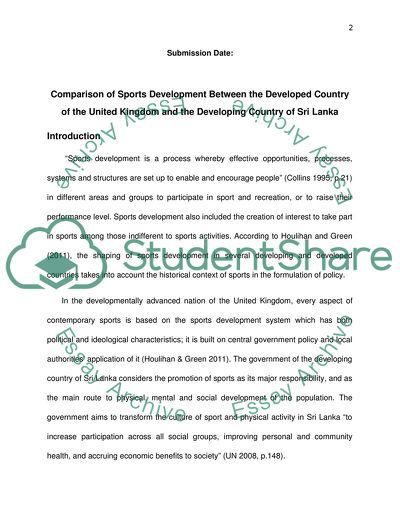Cite this document
(“Sports Development System in the United Kingdom: Political and Research Paper”, n.d.)
Sports Development System in the United Kingdom: Political and Research Paper. Retrieved from https://studentshare.org/sports-and-recreation/1772773-sports-development-in-srilanka-compare-to-the-united-kingdom
Sports Development System in the United Kingdom: Political and Research Paper. Retrieved from https://studentshare.org/sports-and-recreation/1772773-sports-development-in-srilanka-compare-to-the-united-kingdom
(Sports Development System in the United Kingdom: Political and Research Paper)
Sports Development System in the United Kingdom: Political and Research Paper. https://studentshare.org/sports-and-recreation/1772773-sports-development-in-srilanka-compare-to-the-united-kingdom.
Sports Development System in the United Kingdom: Political and Research Paper. https://studentshare.org/sports-and-recreation/1772773-sports-development-in-srilanka-compare-to-the-united-kingdom.
“Sports Development System in the United Kingdom: Political and Research Paper”, n.d. https://studentshare.org/sports-and-recreation/1772773-sports-development-in-srilanka-compare-to-the-united-kingdom.


